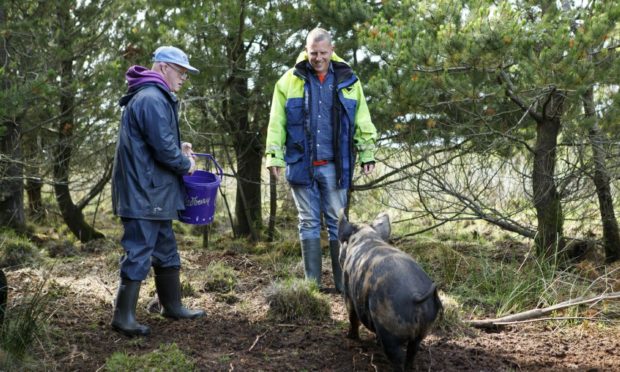Daisy the mud-wallowing Kunekune probably gets more than her share of treats and attention.
She’s just one of favourites of the 25 or so people who spend a day or two each week at Macaulay College, feeding pigs and sheep, collecting eggs, adding their weight to the communal effort to make chutneys or recently even picking up a nail gun to help build a barn.
Few farms have as many staff as this 120-acre unit on the outskirts of Stornoway which owner Roland Engebretsen describes as having the very worst of boggy Lewis land. It’s fortunate then that the team here isn’t focused on growing the best crops or maximising livestock units; rather it is prioritising the satisfaction and safety of people who have a wide range of additional support needs.
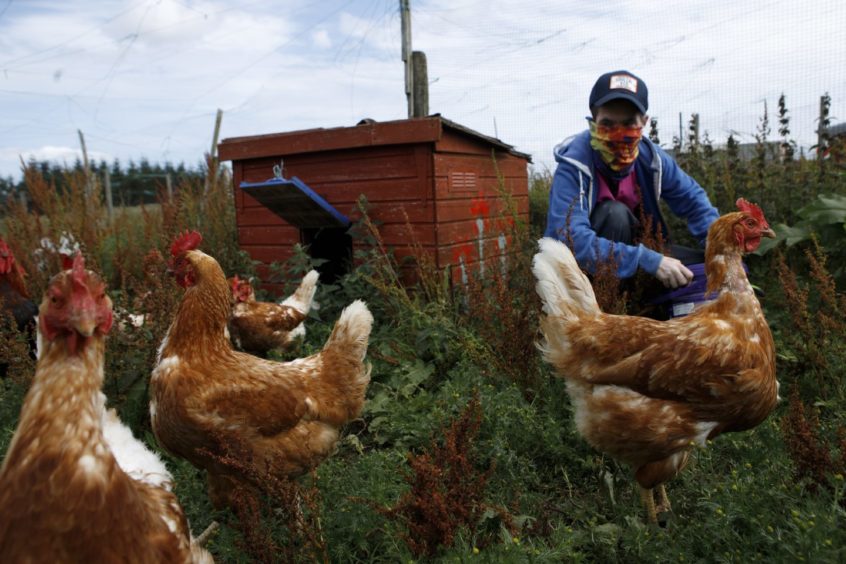
“Our aim for the people who come here is that they take part in interesting and meaningful activities to give them full days, a feeling of being at work and the option to explore different activities,” Roland says as he accompanies two clients, Amy and Ethan, on their way to feed Daisy.
“We work with animals, we’ve also got polytunnels, and what’s grown in them is used as much as possible on the farm, to produce jams and chutneys for sale. We offer crafts and creative work, and we also grow stuff to eat for lunches and try to promote healthy eating.
“This is a working farm, but we’ve just got a token number of animals, and the farming side brings in a little bit of money – the sale of pigs will pay for feed for instance, but there’s not really any profit in it.”
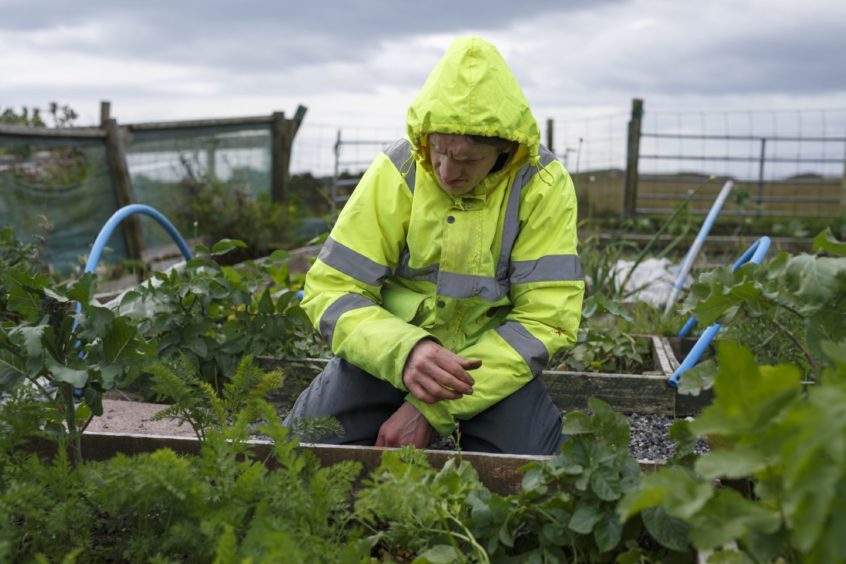
Instead, Macaulay is run as a non-profit community interest company, with the main income coming from the local authority which makes referrals from the social work or education departments and pays for each person’s placement.
Roland took over the running of his grandfather’s farm 11 years ago after studying at art school, spending several years as a support worker then two years volunteering on a Camphill community farm in Wales where he was impressed by the holistic approach to helping people who have extra needs.
But the idea to focus on supporting people outdoors originated during his time in the Stornoway Scouts when he became friends with an island boy who has Downs Syndrome.
“I saw what these boys were capable of, the sort of activities they were able to join in, and if hadn’t encountered them in that environment I would have thought they were less able than they are,” he said.
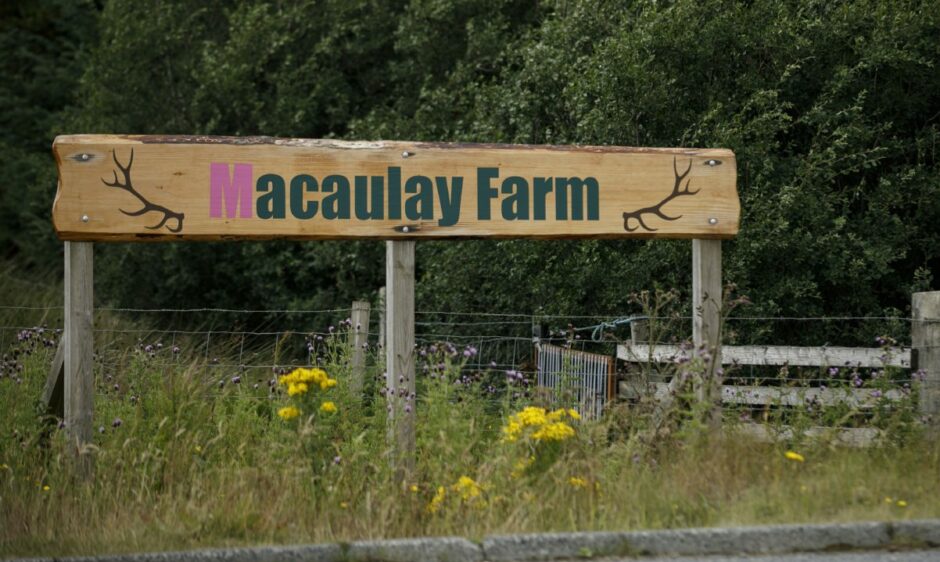
“And my experience later, seeing them in care homes and day centres, was that people weren’t given enough challenge; they were under stimulated in a lot of cases if they didn’t respond well to indoor activities. I thought there had to be a different way of providing support .”
The clients at Macaulay College include mainstream teenagers having issues in school with confidence or behaviour for example, who might attend the farm for just a few weeks or months, but the majority are people who have left school and who might have autism or a learning disability. They can attend indefinitely.
Numbers attending the farm have grown markedly over the past year and there is now a waiting list for spaces at a time when social distancing rules have put pressure on indoor space. A temporary solution was to build a couple of agricultural sheds, the second of which was constructed entirely by staff and clients as an activity.
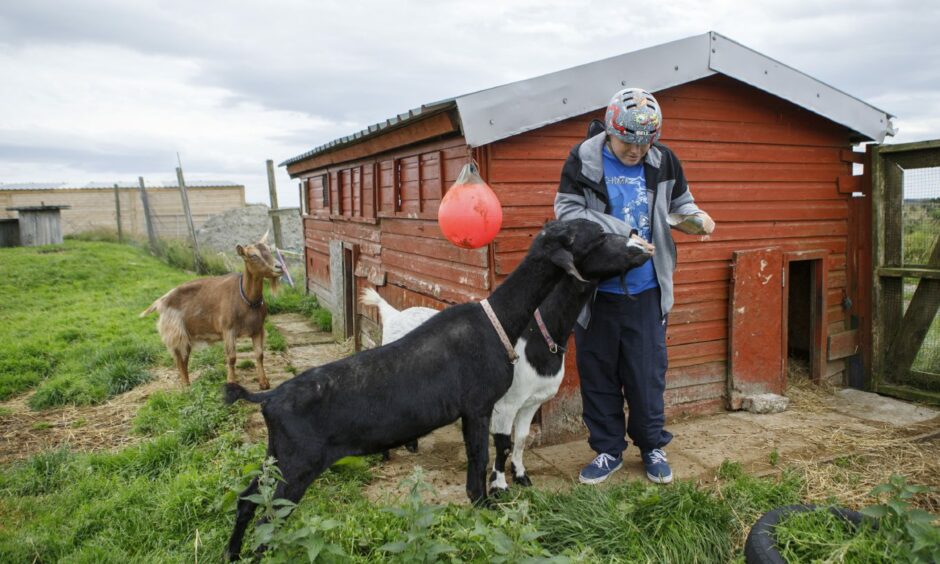
Roland said: “It means there’s thousands of bent-over nails in every building, and every cut is squint or else there are areas that are absolutely beautiful when someone has been very meticulous. But it’s very important to me that everyone is as fully involved in each activity as they’re able to be. ”
The sheds have solved some of the accommodation issues, but even when social distancing is lifted there will still be too many people to work inside insulated buildings during the winter months, so Macaulay College has plans to build a large extension. That means they are about to launch a major fundraising drive.
Roland said: “I’ve been loath to do that in the past as I didn’t ever want the people who come here to be seen as needy, so where possible we’ve tried to generate our own money, but this is too big, we can’t do it without a bit of help.”
The Macaulay College model is something he believes could be replicated in many more parts of the country.
“I would love to see that as I think it’s the optimum way of supporting people,” he said.
